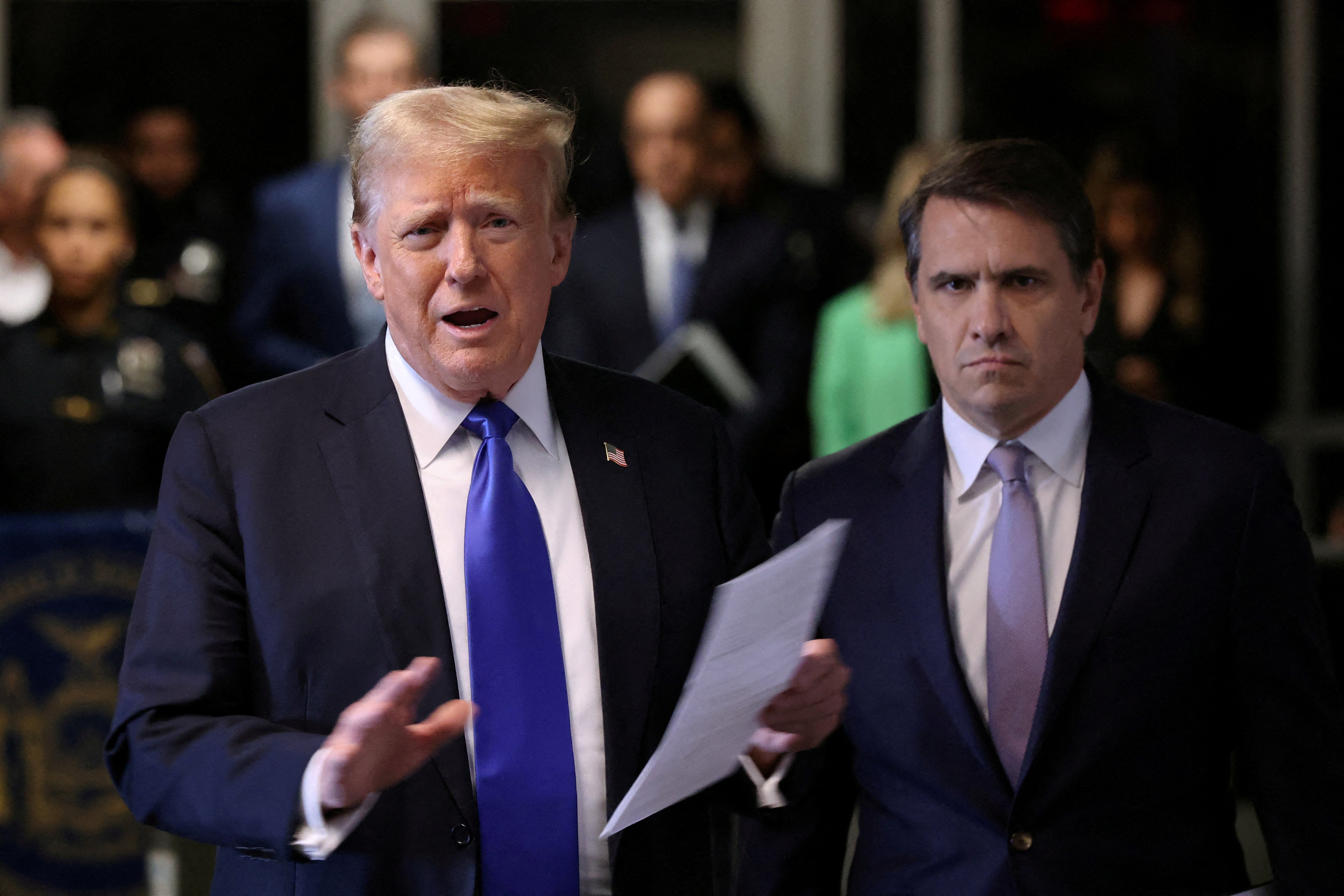Trump sues Judge Merchan to stop hush money sentencing as he tosses last-ditch request to delay
The president-elect will be sentenced January 10 after a jury’s unanimous conviction for falsifying records
The Manhattan judge overseeing Donald Trump’s hush money trial has rejected the president-elect’s last-ditch attempt to delay a sentencing set for January 10.
In an order on Monday, New York Justice Juan Merchan found Trump’s latest arguments to be, “for the most part, a repetition of the arguments he has raised numerous times in the past.”
A separate filing from Manhattan prosecutors blamed the former president for his ongoing attempts to delay proceedings and postpone his sentencing, which was initially set for July — two months after a jury unanimously convicted him on 34 counts of falsifying business records.
“He should not now be heard to complain of harm from delays he caused,” prosecutors wrote on Monday.
The former president has separately sued the judge in a state appeals court, claiming that the judge overstepped his jurisdiction when he denied Trump’s presidential “immunity” defense by allowing the sentencing date to move forward without a decision from appellate judges.
“Forcing a President to continue to defend a criminal case — potentially through trial or, even more dramatically here, through sentencing and judgment — while the appellate courts are still grappling with his claim of immunity would, in fact, force that President ‘to answer for his conduct in court’ before his claim of immunity is finally adjudicated,” according to a filing from Trump’s defense attorneys Todd Blanche and Emil Bove.
Trump asked to move his sentencing date to January 27 — a week after his inauguration.

His attorneys claim that the “absolute immunity” of a sitting president from “any criminal process” extends “into the brief but crucial period of transition when President Trump is the President-Elect.” Prosecuting Trump within that window runs afoul of the Supreme Court’s landmark decision on immunity, according to Trump’s attorneys.
That decision shields presidents from criminal prosecution for actions stemming from “official” duties in office. Merchan has repeatedly established that the actions and evidence at the center of the case against the former president — paying off an adult film star and amending business records to hide reimbursements — had nothing to do with “official” actions of the presidency.
In a surprise ruling last week, Merchan said he would not sentence Trump to a term of incarceration but would instead impose “a sentence of unconditional discharge” — a sentence of no jail time, probation or fines — as “the most viable solution” and permit Trump to continue to appeal the case.
His sentencing hearing is scheduled for Friday — just 10 days before the president-elect returns to the White House a second time.
Trump falsified business records in connection with a scheme to silence adult film star Stormy Daniels, whose story about having sex with Trump threatened to derail his 2016 presidential campaign.
Trump’s reimbursements to his then-attorney Michael Cohen, who paid off Daniels, were falsely recorded in accounting records as “legal expenses.”
Trump has denied all wrongdoing.
Bookmark popover
Removed from bookmarks